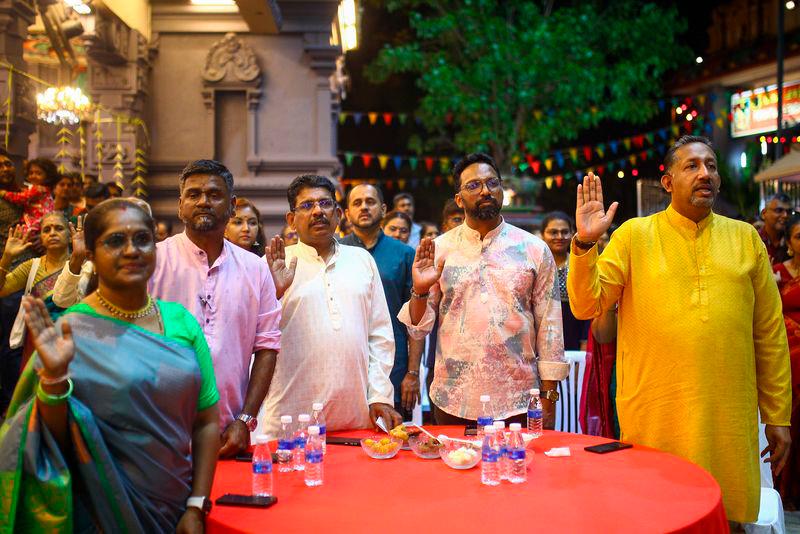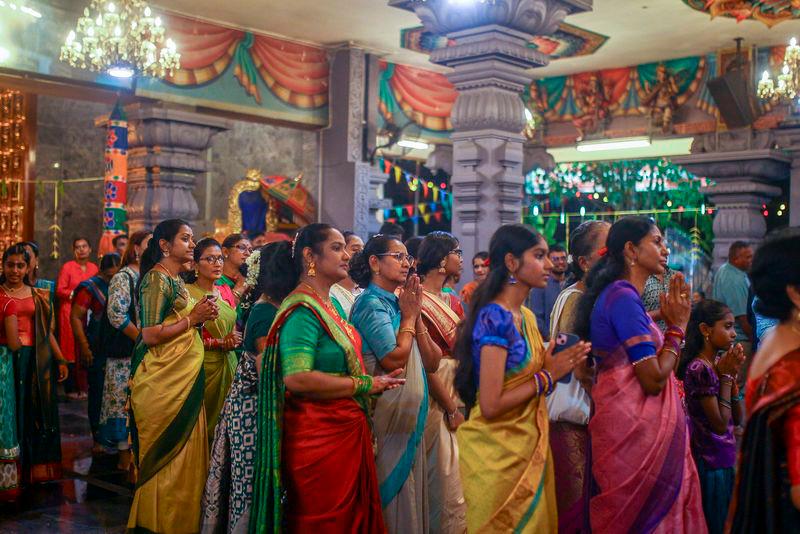SHAH ALAM : The Telugu community in Malaysia, comprising approximately 500,000 members, have prepared to usher in Ugadi, the Telugu New Year, with vibrant celebrations yesterday, (March 30)
Recognised as the beginning of a new era, Ugadi is deeply rooted in Hindu tradition and is observed worldwide by Telugu and Kannada-speaking communities.
According to Telugu Association of Malaysia honorary general secretary Siva Soorianarayanan, Ugadi marks the first new moon of the Chaitra month in the lunar calendar.
“It is believed to be the day when Brahma, the Creator in Hindu mythology, formed the universe,” he said. This year, the Telugu calendar enters the 39th year of its 60-year cycle, named Vishwavasu.
The traditional greeting for the occasion is “Sri Vishwavasu Nama Ugadi Subhakankshalu”, symbolising good wishes for the year ahead.
“Preparations for Ugadi begin at least a week before the festival. Homes are thoroughly cleaned and decorated, and new clothes are purchased.
“On the eve of Ugadi, families hold a special prayer ceremony known as Nokalamma Panduga to honour the goddess Nokalamma,” he said.

On the morning of Ugadi, celebrants wake before dawn to take a ritual oil bath prepared with a blend of castor, coconut, and mustard oils.
Wearing traditional attire—kattu panchi (dhoti) and kandua (shawl) for men and elegant sarees for women—the community gathers for prayers, literary recitations, bhajans, devotional hymn or a collection of hymns and classical music performances.
A major highlight of Ugadi is the Panchanga Sravanam, a sacred reading of the religious almanac predicting the events of the coming year.
“The Panchanga Sravanam is an essential part of the festival, as it offers insights and forecasts for the New Year,” said Siva.
As with most Hindu festivals, food plays a central role in Ugadi celebrations. The signature dish of the festival is Ugadi Pachadi, a unique blend of six flavours: neem (bitter), raw mango (tangy), tamarind juice (sour), green chili (spicy), jaggery (sweet), and salt.
These six tastes symbolise the different emotions of life—sorrow, joy, anger, fear, disgust, and surprise—encouraging individuals to embrace all aspects of their journey.
Other popular festive dishes include Teepu Garulu (sweet vadai dipped in jaggery), Burulu (sweet balls made of green peas or dhal fried in flour), Arusulu (flattened sweet made of rice flour, jaggery, and sesame seeds), and Bobbatu (a sweet flatbread filled with jaggery and flour).
One of the key events of this year’s Ugadi celebrations took place at Sri Maha Mariamman Temple in Kota Kemuning organised by the Telugu Association of Malaysia, where devotees gathered for prayers and festivities starting at 7pm.
Devotees participated in special prayers, cultural performances and bhajans, followed by a grand vegetarian feast shared among the community.









